FIX: Media Creation Tool Error 0x80070005 – 0x90002
The Media Creation Tool is a handy utility that Microsoft developed to enable any user to easily upgrade their computer to Windows 10 or create a medium, such as a USB or DVD, that can be used to upgrade a different computer to Windows 10. However, the Media Creation Tool is not completely flawless, as many users have encountered error code 0x80070005 – 0x90002 when attempting to upgrade to Windows 10 using the tool or when creating upgrade media. Error code 0x80070005 – 0x90002 typically appears when the Windows 10 setup is almost entirely downloaded, thereby wasting all the time the user spent waiting for the download to complete.
The culprit behind error code 0x80070005 – 0x90002, when trying to upgrade to Windows 10 using the Media Creation Tool or creating new installation media, can vary from one computer to another. Fortunately, the following are three methods that have proven to be successful in getting rid of error code 0x80070005 – 0x90002 for various Windows users who have been affected by it,
Method 1: Uninstall any and all third-party system security programs
It’s a widely recognized fact that third-party system security programs, such as firewalls, antivirus software, and anti-malware applications, can interfere with the processes required for executing and completing a Windows system upgrade. This interference often causes problems, such as error 0x80070005 – 0x90002. If your computer’s case of error 0x80070005 – 0x90002 is due to third-party system security programs, you can rectify the issue by going to Control Panel > Uninstall a program. Once there, uninstall all of the third-party security programs on your computer. This action will allow your Windows 10 upgrade through the media creation tool to proceed seamlessly.
Method 2: Stop and then restart all services associated with Windows Update
Open the Start Menu. Search for cmd. Right-click on the program named cmd and click on Run as administrator.
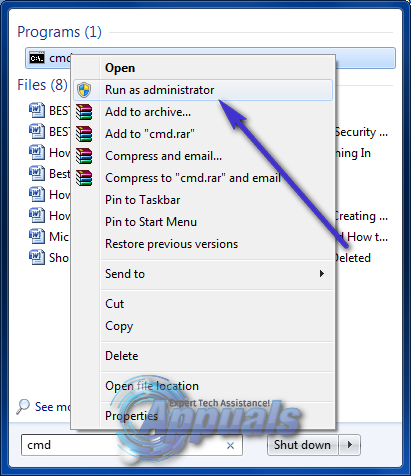
Type the following commands one by one into the elevated Command Prompt to stop services associated with Windows Update, pressing Enter after typing each one of them:
net stop bits
net stop wuauserv
Stop the AppID service.
net stop cryptsvc
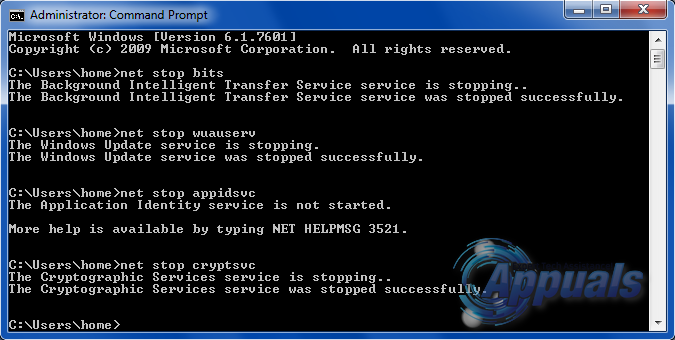
Type the following commands one by one into the elevated Command Prompt to rename the software distribution folders as backup copies, pressing Enter after typing each one:
Ren %systemroot%\SoftwareDistribution SoftwareDistribution.bak
Ren %systemroot%\system32\catroot2 catroot2.bak

Type the following commands one by one into the elevated Command Prompt to restart all of the services you stopped before, pressing Enter after typing each one of them:
Please, start the BITS network.
Start the ‘wuauserv’ network.
Start the appidsvc service.
Start the cryptographic service.
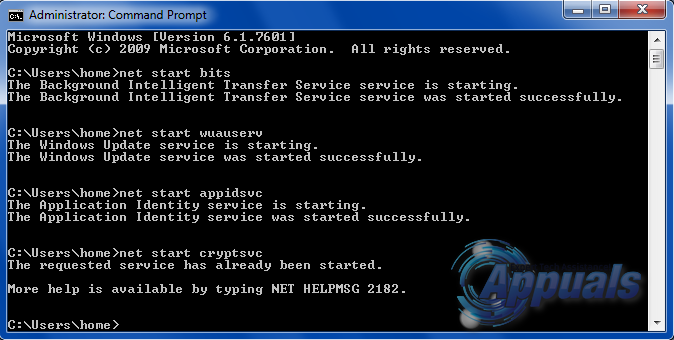
Restart your computer, and you should have no trouble using the media creation tool to upgrade to Windows 10 once your computer boots up.
Method 3: Upgrade using Windows Update instead
The only reason any Windows user would resort to upgrading to Windows 10 using the media creation tool is that they are unable to upgrade their computer through Windows Update. However, if the attempt to upgrade to Windows 10 through the media creation tool results in the error 0x80070005 – 0x90002, and the two methods listed above have not been helpful, you can simply resort to upgrading your computer to Windows 10 using Windows Update instead. If the Windows 10 update does not appear in your computer’s Windows Update app, you will need to follow these steps:”.
Open the Start Menu. Search for regedit. Open the Registry Editor by clicking on regedit.
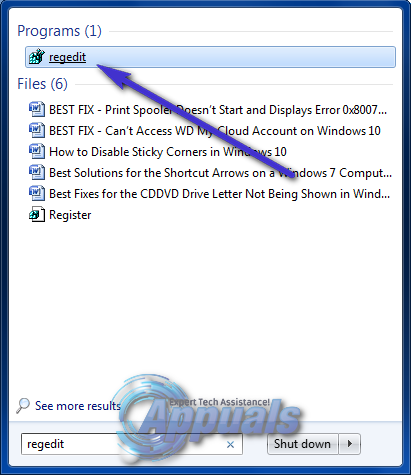
Please navigate to the next page.
Computer\HKEY_LOCAL_MACHINE\SOFTWARE\Microsoft\Windows\CurrentVersion\WindowsUpdate\OSUpgrade
In the left pane, click on ‘OSUpgrade’ to display its contents in the right pane. Right-click on an empty space in the right pane, hover over ‘New’, and click on ‘DWORD (32-bit) value’.
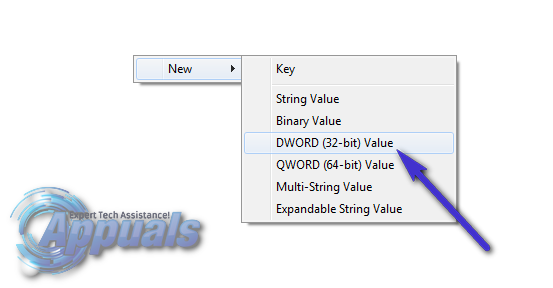
Name the new DWORD value AllowOSUpgrade.”
Double-click on the ‘AllowOSUpgrade’ value and change its value data to ‘1’. Click ‘OK’ as you exit.
![]() Restart your computer, and when you open Windows Update after your computer boots up, an update to Windows 10 should pop up and you can then download it.
Restart your computer, and when you open Windows Update after your computer boots up, an update to Windows 10 should pop up and you can then download it.